
Yale University, PhD '08
BIOGRAPHY
Johanna S. Ransmeier 任思梅 is a social and legal historian of modern China. Her current research investigates the expansion of legal literacy and the development of a Chinese legal imagination during times of revolutionary change. In this project, she asks what happens when citizens’ legitimate expectations of the law get ahead of the ability of legal institutions to deliver on the promise of new legislation or legal innovations? What makes the law a site of both soaring aspiration and crushing disappointment? She also studies the surprising ways crime and the law intersect with family life in China. Her first book Sold People: Traffickers and Family Life in North China (Harvard University Press, 2017) exposed the transactional foundations of traditional family structures and the role of human trafficking in late Qing and Republican China. She is a fellow with the National Committee on US China Relations Public Intellectuals Program (Cohort V) and was a visiting research fellow at the Institute of Modern History at Academia Sinica in Taiwan. Before joining the University of Chicago, she was a member of the department of History and Classical Studies at McGill University. She currently serves as co-chair of the faculty board of the Pozen Family Center for Human Rights.
Recent Research / Recent Publications
- Receives 2022 Quantrell Award
- Named a fellow in the Public Intellectuals Program of the National Committee on US-China Relations
- Coorganizes "Human Trafficking, Labor Migration, and Migration Control in Comparative Historical Perspective" conference, Pozen Family Center for Human Rights
- Discusses Chinese Human Trafficking and Slavery during the Late Qing and Republican Periods [video, 5 minutes]

Massachusetts Institute of Technology, PhD '11
BIOGRAPHY
Michael Rossi is an historian of medicine and science in the United States from the nineteenth century to the present. His work focuses on the historical and cultural metaphysics of the body: how different people at different times understood questions of beauty, truth, falsehood, pain, pleasure, goodness, and reality vis-à-vis their corporeal selves and those of others.
His first book manuscript traces the origins of color science—the physiology, psychology, and physics of color—in the late-nineteenth-century United States to a series of questions about what modern America ought to be: about the scope of medical, scientific, and political authority over the sensing body; about the nature of aesthetic, physiological, and cultural development between individual and civilization; about the relationship between aesthetic harmony, physiological balance, and social order.
His second project looks at how linguists, anatomists, and speech pathologists moved, over the course of the twentieth century, from viewing language as a function of sound-producing organs (tongue, lips, palate, larynx, etc.) to searching for a notional “language organ” within the brains of all human beings. Such interpretative shifts in understanding human anatomy are neither an ancient phenomenon nor one limited to extreme medical specialization, but rather are ongoing issues, providing a window on the social, political, and philosophical understanding of modern bodies, medicine, and science.
Prior to Chicago, Michael was a postdoctoral fellow in the Groupe Histoire des sciences de l’homme at the Ecole Normale Superieur de Cachan in France. He received a PhD in the history and anthropology of science, technology, and society from MIT and an AB from Columbia University.
Recent Research / Recent Publications
-
Publishes The Republic of Color (University of Chicago, 2019)

University of Michigan, PhD'96
Chair, Department of Classics (2017-2020, 2021-2024)
Faculty Member, Renaissance Studies
Faculty Member, Institute on the Formation of Knowledge
Recent Research / Recent Publications
- Appointed Extraordinary Professor in the Department of Ancient Studies, Stellenbosch University (January 2024 – December 2026)
- Elected member of the American Academy of Sciences and Letters (2024)
- Visiting Professor, Faculté de Droit, Université Panthéon-Assas – Paris II (March 2022)
- Published edited volume, A Cultural History of Ideas in Classical Antiquity (2022) with Thomas Habinek and Giulia Sissa
- Published edited volume, Roman and Local Citizenship in the Long Second Century (2021), with Myles LAvan
- Published edited volume, The New Late Antiquity: Intellectual Profiles (2021), with Marco Formisano
- Published edited volume, The Discovery of the Fact (2020), with William P. Sullivan, PhD'20 in Classics and History

Prof. Alitto has retired and no longer directs BA theses or accepts new graduate students.
Harvard University, PhD '75
BIOGRAPHY
Guy Alitto has taught in all areas of Chinese studies, including the modern and classical Chinese languages and premodern history. Most of his courses, and all of his graduate courses, are in the area of modern Chinese history. His research in the last twenty years has been in modern intellectual history, local histories at the village, county, and regional levels (Zouping county in Shandong, the Wanxi area of southwestern Henan), family history (the Liangs of Guilin), and social history (Chinese banditry 1880–1950). He is especially interested in the connections between the political-social and the intellectual-cultural realms, as manifest in specific individuals and local cultures. He continues to participate in the ongoing Chinese discussion on culture and modernization through publications and lectures in the Chinese language.
Recent Research / Recent Publications
-
持续焦虑: 世界范围内的饭现代化思潮 (The enduring anxiety: anti-modernization thought trends in world-wide perspective) 三联书店 (SDX Joint Publishing Company)Shanghai, 2022.
-
“梁漱溟乡村建设运动的起源” (The Origins of Liang Shuming’s Rural Reconstruction Movement) 儒家文明论坛 (Confucian Civilization Forum) No. 5,Jinan, China 2019.
-
“Zouping in Historical Perspective” (Chap. 2) Oi, Jean C. and Goldstein M, eds. In Zouping Revisited: Adaptive Governance in a Chinese County. Stanford, Ca. Stanford University Press, 2018.
-
我所了解的梁漱溟 (What I know about Liang Shuming). In Collected Papers of the Symposium on Chinese Studies 2016. 北京,中国社会科学出版社 (China social sciences press)
-
Foreign Expert, Editor 中华思想术语 (terminology dictionary for Chinese thought) Volumes 1-6 (Encyclopedic reference work of Chinese philosophical, historical and literary terms published by 外国语教育与研究出版社 (Foreign language education and research press), Beijing, 2014-2017.
-
Editor, translator, contributor. Reconstituting Confucianism: Theory and Practice in the Contemporary World. Berlin: Springer, 2015.
-
这个世界会好吗 Will man survive? Enlarged, annotated and illustrated edition. 三连书店 Sanlian publishers. Beijing, 2015.
-
Chinese language translation by author, 最后的儒家:梁漱溟与中国现代化的两难. 大学教育与研究出版社 The last Confucian: Liang Shuming and the Dilemma of Chinese modernity (Foreign Studies University teaching and research press) Beijing. 2014.
-
"汉学与世界文化的交流" (Sinology and Communications among World Culture)]. World Sinology 12 (Autumn 2013).
-
"这个世界会好吗”如何完成的” (How ‘Will Man Survive?’ came about). Bishan 2 Beijing (2013).
-
"Some Reflections on the Historiography of the Chinese Republican Revolution." In Lecture Series on Republic of China: A Centennial History, 176–210. Taipei: Academia Historica, 2012.
-
吾曹不出如苍生何?—梁漱溟晚年口述 (If We Don’t Go Forth, What Will Happen to the People?). Beijing: Foreign Language Teaching and Research Press, 2010.
-
Has Man a Future: Dialogues with the Last Confucian. Beijing: Foreign Language Teaching and Research Press, 2010.
-
2015 Honored for Exceptional Contributions at the Ninth China National Book Awards
-
2012–13 Outstanding Chinese Documentary Film, Central China TV. As subject of Dialogues with the Last Confucian, 2012
-
2012 Best Book Award, National Library of China. For 吾曹不出如苍生何? [If We Don’t Go Forth, What Will Happen to the People?]
-
2011 Outstanding Contributions to Sino-Foreign Exchange, Phoenix TV Satellite Networks. For 因你中国更美丽 [You Bring Charm to China]
-
2007 Ten Best Books of the Last Year, 新华网 [New China Web]. For 这个世界会好吗? [Will Man Survive?]
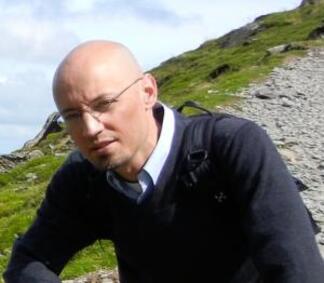
University of Chicago, PhD '05
BIOGRAPHY
My first book, Enlightenment's Frontier: the Scottish Highlands and the Origins of Environmentalism (Yale, 2013) investigates the environmental roots of the Scottish Enlightenment. What was the place of the natural world in Adam Smith's famous defense of free trade? This perspective recovers the forgotten networks of improvers and natural historians that sought to transform the soil, plants, and climate of Scotland in the eighteenth century. The Highlands offered a vast outdoor laboratory for rival liberal and conservative views of nature and society. But when the improvement schemes foundered toward the end of the century, northern Scotland instead became a crucible for anxieties about overpopulation, resource exhaustion, and the physical limits to economic growth. In this way, the rise and fall of the Enlightenment in the Highlands sheds new light on the origins of environmentalism.
My second book, Green Victorians: The Simple Life in John Ruskin's Lake District (Chicago, 2016), coauthored with Vicky Albritton, considers the problem of the Anthropocene from the perspective of a late Victorian utopian movement. Green Victorians tells the story of the first "post-carbon" society in Britain, a community in the English Lake District dedicated to Arts and Crafts industry and simple living. This experiment was galvanized by precocious anxieties about anthropogenic climate change, voiced by the eccentric polymath John Ruskin. He convinced his supporters to reject coal and steam in favor of renewable energy and labor-intensive handicraft production. By creating a new culture of sufficiency, Ruskin and his followers sought to demonstrate that a simple material life was still compatible with a great measure of cultural creativity and intellectual freedom. Green Victorians explores the radical and material experience of Ruskin's community without shying away from the darker side of the movement, including its technophobia and paternalism.
My current research deals with a set of closely related themes in environmental history, history of science, and political economy. The British Industrial Revolution saw the birth of the first fossil fuel economy. At the same time, geologists transformed the public understanding of the earth's interior and deep past. My new project sets out to show that these developments—fossil growth and fossil science—converged to produce a fundamental reorientation of politics and culture towards cheap energy and cornucopian growth.
My research has been funded by fellowships from the Institute of Historical Research in London, the Andrew W. Mellon Foundation, the Huntington Library in Los Angeles, the American Council for Learned Societies, and the Notre Dame Institute for Advanced Study.
Recent Research / Recent Publications
- Fredrik Albritton Jonsson and Carl Wennerlind, Scarcity: Economy and Nature in the Age of Capitalism, Harvard University Press, 2023.
- Coauthor with Vicky Albritton. Green Victorians: The Simple Life in John Ruskin's Lake District. Chicago: University of Chicago Press, 2016. Ruskin Society Book Prize 2016 (runner up).
- Enlightenment's Frontier: The Scottish Highlands and the Origins of Environmentalism. New Haven, CT: Yale University Press, 2013.
- Editor with John Brewer, Neil Fromer, and Frank Trentmann, Scarcity in the Modern World: History, Politics, Society and Sustainability 1800-2075, Bloomsbury Press: 2019
- “Ruskin in the Year of COVID 19,” Ruskin Birthday Reflections, Reilly Center, Notre Dame, February 8, 2021
- Contributor to Roundtable on Duncan Kelly, Politics and the Anthropocene for H-Diplo.
- “Natural History” in Old Ways New Roads, ed. Nigel Leask et al (Edinburgh: Birlinn 2021), museum catalogue for 2020 exhibition about Highland tour at the Hunterian Museum in Glasgow
- "The Coal Question Before Jevons." Historical Journal 62, no. 2 (June 2019).
- "Growth in the Anthropocene." In Scarcity in the Modern World: History, Politics, Society, and Sustainability, 1800–2075, edited by John Brewer, Neil Fromer, Fredrik Albritton Jonsson, and Frank Trentmann. London: Bloomsbury Press, 2019.
- “Roundtable: The Anthropocene in British History [with Chris Otter, Alison Bashford, John Brooke, and Jason Kelly]." Journal of British Studies 57, no. 3 (July 2018): 568–96.
- "Abundance and Scarcity in Geological Time 1784–1844." In Nature, Action, and the Future: Political Thought and the Environment, edited by Katrina Forester and Sophie Smith, 70–93. Cambridge: University of Cambridge Press, 2018.
- "Political Economy." In Historicism and the Human Sciences in Victorian Britain, edited by Mark Bevir, 154–85. Cambridge: Cambridge University Press, 2017.
- "Scottish Tobacco and Rhubarb: The Natural Order of Civil Cameralism in the Scottish Enlightenment." Eighteenth-Century Studies 49, no. 2 (Win. 2016): 129–47
- "Adam Smith and Enlightenment Studies." In Adam Smith: His Life, Thought, and Legacy, edited by Ryan Patrick Hanley, 443–60. Princeton, NJ: Princeton University Press, 2016.
- "Island, Nation, Planet: Malthus and the Enlightenment." In New Perspectives on Malthus, edited by Robert J. Mayhew, 128–54. Cambridge: Cambridge University Press, 2016.
- "Climate Change and the Retreat of the Atlantic: The Cameralist Context of Pehr Kalm's Voyage to North America 1748–51" William and Mary Quarterly 72, no. 1 (Jan. 2015).
- "The Origins of Cornucopianism: A Preliminary Genealogy." Critical Historical Studies 1, no. 1 (Spr. 2014).
- "Adam Smith in the Forest." In The Social Lives of the Forests, edited by Susanna B. Hecht, Kathleen D. Morrison, and Christine Padoch. Chicago: University of Chicago Press, 2013.
- "Natural History and Improvement: The Case of Tobacco." In Mercantilism Reimagined: Political Economy in Early Modern Britain and Its Empire, edited by Philip J. Stern and Carl Wennerlind. Oxford: Oxford University Press, 2013.
- "A History of the Species?" Review essay of Deep History: The Architecture of Past and Present, edited by Andrew Shyrock and Daniel Lord Smail, History and Theory 52, no. 3 (Oct. 2013).
- "The Industrial Revolution in the Anthropocene." Journal of Modern History 83, no. 3 (Sept. 2012).
- "Rival Ecologies of Global Commerce: Adam Smith and the Natural Historians." American Historical Review 115, no. 5 (Dec. 2010).
- "Prudence and Magnanimity: Roundtable on Ryan Hanley's Adam Smith and the Character of Virtue." The Art of Theory: Conversations in Political Philosophy (Nov. 2010).
- "Enlightened Hands: Managing Dexterity in British Medicine and Manufactures 1760–1800." In Body Parts: Critical Explorations in Corporeality, edited by Christopher Forth and Ivan Crozier. Lanham, MD: Lexington Books, 2005.
- "The Physiology of Hypochondria in Eighteenth-Century Britain." In Cultures of the Abdomen: Dietetics, Digestion, and Fat in the Modern World, edited by Christopher E. Forth and Ana Cardin-Coyne. Palgrave Macmillan, 2005.
- Co-authors "Reducing the Carbon Footprint of Academic Travel," Inside Higher Ed, Apr. 18, 2019
- Launches planetary history research project with Dipesh Chakrabarty
- Participates in Q&A on how to teach the Anthropocene, EuropeNow, with syllabus
- Discusses Amitav Ghosh’s recent book, The Great Derangement: Climate Change and the Unthinkable, in an article in the Guardian.
- Coauthors, with Vicky Albritton, Green Victorians: the Simple Life in John Ruskin's Lake District (Chicago, 2016). Ruskin Society Book Prize 2016 (runner up).
- Coorganizes "Climate Change: Disciplinary Challenges to the Humanities and Social Sciences" at the Neubauer Collegium
- Delivers the inaugural T. C. Smout Lecture in Scottish History on the "Enlightenment's Frontier: The Scottish Highlands and the Origins of Environmentalism" [audiocast, 55 minutes
- Talks at the Social Life of Forests Conference on "Invisible Forests: Natural Knowledge in the Making of Classical Economics" [video, 27 minutes]
- Co-author with Rachael Osborn, Mark Fiege and Will Wright, Amicus brief of environmental historians, Juliana v. United States, February 22, 2019.
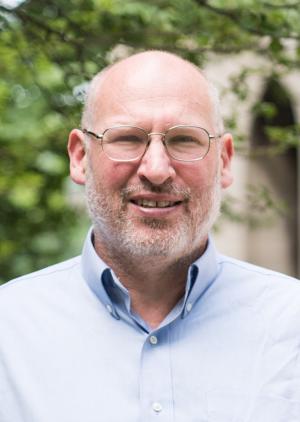
Harvard University, PhD' 90
BIOGRAPHY
I am a historian of Britain and its Empire, of comparative revolutions, comparative empires, and of northern Europe more broadly. I am both a deeply committed archival historian and a scholar who believes profoundly that historians should engage with the social sciences. My first book, Protestantism and Patriotism, was an entangled and comparative study of English and Dutch politics, culture, and society in the mid-seventeenth century. I traced the decline of apocalyptic thinking and the rise of notions of political economy in England and the Dutch Republic. My second major monograph, 1688: The First Modern Revolution, offered both a major revisionist account of England's Glorious Revolution and a reappraisal of the literature on revolutions more broadly. I showed that far from being an unrevolutionary revolution, the Revolution of 1688 radically transformed English state and society. The revolution, I suggest, can only be understood by placing it in a European and global context. Since 1688 was a radical revolution, I suggest, it is imperative to rethink the nature of revolutions since so much of that literature assumed that the later eighteenth-century French Revolution was the first modern revolution. My third monograph, The Heart of the Declaration, argued that by placing the American Revolution and its seminal document, the Declaration of Independence, in an imperial rather than proto-national context it becomes clear that Americans broke away from Britain not because they resented the imperial state but because they wanted a different kind of state—one that would actively promote social and economic prosperity and equality.
I am currently engaged in a number of research projects. For the past decade I have been working on a Global History of the British Empire, ca. 1650–1784. This book, based on research in a wide range of European, North American, and West Indian archives, insists that the British imperial state was just as institutional strong if structurally distinct, from its rivals. Throughout the empire Britons debated and fought over the kind of imperial state they wanted. Some wanted to focus on a political economy that privileged colonial production over one that emphasized colonial consumption; some wanted an empire that favored England, while others thought the empire should be organized as a confederation; some thought chattel slavery was essential to the prosperity of the empire while others decried cattle slavery as economically and morally deleterious; some thought the empire should protect and promote the development of indigenous peoples, while others thought indigenous peoples were a barrier to imperial development. I insist that accounts of the colonies that focus on the binary relationship between a particular colony or set of colonies and Britain will necessarily misunderstand that relationship. The British Empire can only be understood as a global phenomenon. It is essential to think the empire whole. I am working on a second monograph, Partners in Revolution, that compares the Irish Revolution of 1782 and the American Revolution. I highlight the social, cultural, and ideological similarities between the Irish and American situations. The book explains why Americans severed ties with the British Empire and the Irish did not. I suggest that one of the consequences of the abortive Irish Revolution was that the re-emergence of confessional divisions in Ireland. Finally, I am working on a set of essays (maybe a book) with James Robinson of Harris Public Policy, trying to explain British divergence: why was it that Britain, and not China, India, France, or the Dutch Republic, became the first industrial nation? Why did the British state take the distinctive form that it did?
My research has been supported over the years with fellowships from the Harvard Society of Fellows, the ACLS, the Guggenheim Foundation, the Dorothy and Lewis B. Cullman Center, the Institute for Advanced Studies at Princeton, the Woodrow Wilson Foundation, and the American Philosophical Society. I have been a visitor at All Souls College (Oxford), EHESS (Paris), IMT (Lucca) and the University of Warwick.
I am deeply committed to both undergraduate and graduate education. I am happy to supervise senior theses and doctoral dissertations on any topic in British history, the history of the British Empire, Atlantic history, Dutch history, political economy, revolutions, comparative empires, history of European ideas, seventeenth- and eighteenth-century religious history, and the cultural history of seventeenth- and eighteenth-century Europe.
I have supervised over twenty doctoral dissertations covering a wide range of topics. Some topics have included the origins of humanitarianism in seventeenth- and eighteenth-century Europe, the rise of the Patriot party in the eighteenth-century British Empire, the emergence of associational life in the British Empire, the East India Company and the emergence of British India, politics of the navy and the British Empire, the transformation of British India in the late eighteenth century, the Anglo-French-Indian struggle for the Ohio Valley, British imperial indigenous policy in Scotland, North America, and Bengal, the high church reaction to the Revolution of 1688, the remaking of the Church of England after the Act of Toleration, the Scottish Kirk in the early eighteenth century, the rise of opera in Britain, the making of the English Caribbean in the late seventeenth century, British monetary policy in the late seventeenth and eighteenth centuries, the rise of slave labor in the British Empire, Leisler's Rebellion and its consequences, British party politics in the early eighteenth century, the persistence of Catholicism in the British Empire, and many more.
I am a co-convenor of the History and Social Sciences and the Empires and the Atlantics forums.
Recent Research / Recent Publications
The Heart of the Declaration: The Founders’ Case for Activist Government. New Haven, CT: Yale University Press,, 2016.
co-edited with Peter Lake. The Politics of the Public Sphere in Early Modern England: Public Persons and Popular Spirits. Manchester: Manchester University Press, 2012
1688:The First Modern Revolution. New Haven, CT: Yale University Press, 2011.
- Morris D. Forkosch Prize, American Historical Association
- Gustav Ranis International Book Prize, Yale MacMillan Center
- Bronze Medal, Independent Publisher Book Awards
England’s Glorious Revolution 1688–1689: A Brief History with Documents. Boston: Bedford/St. Martin's, 2006
co-edited with Alan Houston. A Nation Transformed: England after the Restoration. Cambridge: Cambridge University Press, 2001.
Protestantism and Patriotism: Ideologies and the Making of English Foreign Policy, 1650–1668. Cambridge: Cambridge University Press, 1996.
-
Co-edits volume The Politics of the Public Sphere in Early Modern England (Manchester University Press, 2019)
-
Discusses "How the Radical Aims of the American Revolutionaries Are Relevant Today," Valdai Discussion Club, June 8, 2017 [video, 94 mins]
-
Delivers "The Founders' Case for Strong Government," George Washington Forum, Ohio University, February 23, 2017 [video, 81 mins]
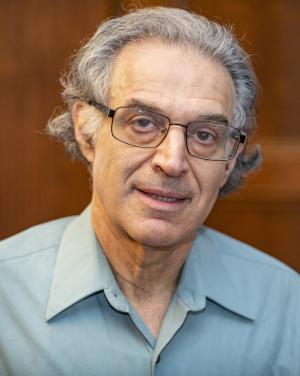
Yale University, PhD' 88
BIOGRAPHY
Kenneth Pomeranz is a University Professor of History and in the College; he previously taught at the University of California, Irvine. His work focuses mostly on China, though he is also very interested in comparative and world history. Most of his research is in social, economic, and environmental history, though he has also worked on state formation, imperialism, religion, gender, and other topics. His publications include The Great Divergence: China, Europe, and the Making of the Modern World Economy (2000), which won the John K. Fairbank Prize from the AHA, and shared the World History Association book prize; The Making of a Hinterland: State, Society and Economy in Inland North China, 1853–1937 (1993), which also won the Fairbank Prize; The World that Trade Created (with Steven Topik, first edition 1999, 3rd edition 2012), and a collection of his essays, recently published in France. He has also edited or co-edited five books, and was one of the founding editors of the Journal of Global History. He is a fellow of the American Academy of Arts and Sciences and has received fellowships from the Guggenheim Foundation, the American Philosophical Society, American Council of Learned Societies, the Institute for Advanced Studies, the National Endowment for the Humanities, and other sources. His current projects include a history of Chinese political economy from the seventeenth century to the present, and a book called Why Is China So Big? which tries to explain, from various perspectives, how and why contemporary China's huge land mass and population have wound up forming a single political unit.
Recent Research / Recent Publications
Coeditor with J. R. McNeill. Production, Destruction, and Connection, 1750–Present. Part 1: Structures, Spaces, and Boundary Making, The Cambridge World History, vol. VII (Cambridge: Cambridge University Press, 2015.
Coeditor with J. R. McNeill. Production, Destruction, and Connection, 1750–Present. Part 2: Shared Transformations? The Cambridge World History, vol. VII (Cambridge: Cambridge University Press, 2015.
Coeditor with Laura J. Mitchell and James B. Given. Worlds Together, Worlds Apart: A Companion Reader. New York: W.W. Norton, 2011.
La Force de L’Empire: Révolution industrielle et écologie, ou pourquoi l’angleterre a fait mieux que la Chine. Edited, with an introduction, by Philippe Minard. Alfortville: Éditions ère, 2009.
The book collects various pieces of my work previously published in English, with some previously unpublished material added in Chapter II.
Editor, The Pacific in the Age of Early Industrialization. Farnham: Ashgate Publishing, 2009.
Coeditor with Kate Merkel-Hess and Jeffrey Wasserstrom. China in 2008: A Year of Great Significance. Washington, DC: Rowman and Littlefield, 2009.
"Introduction: the Environment and World History" and "The Transformation of China's Environment, 1500–2000." In The Environment and World History, 1500–2000. Coedited with Edmund T. Burke III, 3–32, 118–164. Berkeley: University of California Press, 2009.
Coeditor with John McCusker, Stanley Engerman, David Hancock, and Lewis Cain. Encyclopedia of the History of World Trade. Farmington Hills, MI: Thomson Gale 2005.
The Great Divergence: China, Europe and the Making of the Modern World Economy. Princeton, NJ: Princeton University Press, 2000.
Coauthor with Steven Topik. The World that Trade Created: Society, Politics and an Emerging World Economy, Armonk, NY: M.E. Sharpe, 1999; fourth edition, 2017.
The Making of a Hinterland: State, Society and Economy in Inland North China, 1853–1937. Berkeley: University of California Press, 1993.
- "Repenser le changement économique de longue durée: La Chine, l’Europe, et l’historie comparée." In L'histoire économique en mouvement: entre héritages et renouvellements, edited by Jean Claude Daumas, 293–310. Villieneuve d’Ascq: Presses universitaires du Septentrion, 2012.
- "Contemporary Development and Economic History: How Do We Know What Matters?" Economic History of Developing Regions, special issue for World Economic History Congress 27, no. 1 (2012): 134–145.
- "The Great Divergence debate at 10—and at 250." Historically Speaking 12, no. 4 (September/October, 2011). Response to a forum on the tenth anniversary of the publication of The Great Divergence.
- "Areas, Networks, and the Search for 'Early Modern' East Asia." In Comparative Early Modernities, edited by David L. Porter. London: Palgrave, 2012.
- "Labor-Intensive Industrialization in the Yangzi Delta: Late Imperial Patterns and their Modern Fates." In Labor-Intensive Industrialization in Global History, edited by Kaoru Sugihara and G.M. Austin. London: Routledge, 2012.
- Coauthor with Daniel Segal. "World History: Departures and Variations." In A Companion to World History, edited by Douglas Northrop. New York: Wiley-Blackwell, 2012.
- "Advanced Agriculture." In The Oxford Handbook of World History, edited by Jerry H. Bentley, 246–266. Oxford: Oxford University Press, 2011.
- "Labeling and Analyzing Historical Phenomena: Some Preliminary Challenges." Cliodynamics: The Journal of Theoretical and Mathematical History 2, no. 1 (March 2011): 3–27.
- "Commerce." In The Oxford Concise Companion to World History, edited by U.C. Rublack, 105–128. Oxford, Oxford University Press, 2011.
- "Their Own Path to Crisis? Social Change, State-Building, and the Limits of Qing Expansion, ca. 1770–1840." In The Age of Revolutions in a Global Context, edited by David Armitage and Sanjay Subrahmanyam, 189–208. New York: Palgrave, 2010.
- "Putting Modernity in Its Place(s): Reflections on Jack Goody's The Theft of History." Theory, Culture, and Society 26, no. 7/8 (December 2009): 32–51.
- "Shang xia Taishan—Zhongguo minjian xinyang zhengzhi zhong de Bixia yuanjun (yue gongyuan 1500 nian zhi 1949 nian." (Up and Down Mt. Tai—Bixia Yuanjun in the Politics of Chinese Popular Religion, ca 1500–1949) Xin shixue 20, no. 4 (December, 2009): 169–215.
- "Le machinisme induit-il une discontinuité historique? Industrialisation, modernité précoce et formes du changement économique dans l’histoire globale." In Histoire globale, mondialisations, capitalisme, edited by P. Beaujard, L. Berger, and P. Norel, 335–373. Paris: La Découverte, 2009.
- "Calamities Without Collapse: Environment, Economy and Society in China, ca. 1800–1949." In Questioning Collapse, edited by Patricia McAnany and Norman Yoffee. Cambridge: Cambridge University Press, 2009.
- "The Great Himalayan Watershed: Agrarian Crisis, Mega-Dams, and the Environment." New Left Review 58 (July/August 2009): 5–39 (short version). Longer version published in The Asia-Pacific Journal: Japan Focus (July 27, 2009). Abridged version published in Engineering World (August/September 2009): 32–42.
- "World History and Environmental History: Introducing an Agenda," and "China's State, Economy and Environment in Global Perspective, 1400–2000." In Environmental History and World History, edited by both in Edmund Burke III and Kenneth Pomeranz, 3–32, 118–164. Berkeley: University of California Press, 2009.
- "Introduction: Industrialization and the pacific world ca. 1800-1930 - and beyond" In The Pacific in the Age of Early Industrialization, edited by Kenneth Pomeranz, xiii–xlix. Farnham: Ashgate, 2009.
- "Rekishi wa gurobaru kenkyu ni dono yō na kōken ga de suru ka?" (What Does History Have to Offer to Global Studies?). In Gurobaru Hisutori no Chōsen (Challenges of Global History), edited by Mizushima Tsukasa, 46–55. Tokyo: Yamakawa Shuppansha, 2008.
- "Land Markets in Late Imperial and Republican China." Continuity and Change 23, no. 1 (April 2008): 101–150.
- "Chinese Development in Long-run Perspective." Proceedings of the American Philosophical Society 152, no. 1 (March 2008): 83–100.
- "Social History and World History: From Daily Life to Patterns of Change." Journal of World History 18, no. 1 (March 2007). Chinese translation, 2009
- "Orthopraxy, Orthodoxy, and the Goddess(es) of Taishan." Modern China 33, no. 1 (January 2007): 22–46.
- "Limian jingji: Zhonghua diguo wanqi de nongcun shouru, feiwendingxing yu xigbie guifan" (The Economics of Respectability: Rural Incomes, Instability, and Gender Roles in Late Imperial China). Jindai Zhongguo funu shi yanjiu (Research on Modern Chinese Women’s History) 14 (December 2006): 205–241. A revised and translated version of "Women's Work and the Economics of Respectability." In Gender in Motion, edited by Bryna Goodman and Wendy Larson. Lanham, MD: Rowman and Littlefield, 2005.
- "Without Coal? Colonies? Calculus? Europe, China, and the Industrial Revolution." In Unmaking the West: "What-If" scenarios that Rewrite World History, edited by Ned Lebow, Geoffrey Parker, and Philip Tetlock, 241–276. Ann Arbor: University of Michigan Press, 2006.
- "Imperialism, Development, and 'Civilizing' Missions, Past and Present." Daedalus (April 2005).
- "Standards of Living in Eighteenth-Century China: Regional Differences, Temporal Trends, and Incomplete Evidence." In Standards of Living and Mortality in Pre-Industrial Times, edited by Robert Allen, Tommy Bengtsson, and Martin Dribe. New York: Oxford University Press, 2005.
- "Zhuanbian de diguo: Zhonghua diguo moqi de falu, shehui, shangyehua he guojia xingcheng" (An Empire in Transition: Law, Society, Commercialization, and State Formation in Late Imperial China). Zhongguo Xueshu 15 (Winter 2004).
- "Shijie jingji shi zhong de jinshi Jiangnan: bijiao yu zonghe guancha" (Early Modern Jiangnan in Global Economic History: Comparative and Integrative Perspectives). Lishi yanjiu 284 (August 2003): 3–48.
- "Women's Work, Family, and Economic Development in Europe and East Asia: Long-term Trajectories and Contemporary Comparisons." In The Resurgence of East Asia: 500, 150, and 50 Year Perspectives, edited by Giovanni Arrighi, Takeshi Hamashita, and Mark Selden, 124–172. London and New York: Routledge, 2003.
- "Beyond the East-West Binary: Resituating Development Paths in the Eighteenth Century World." Journal of Asian Studies 61, no. 2 (May 2002): 539–590.
- "Political Economy and Ecology on the Eve of Industrialization: Europe, China, and the Global Conjuncture." American Historical Review 107, no. 2 (April 2002): 425–446. Translated and reprinted in Globalgeschichte: Theoriean, Ansätze, Themen, vol. 1, edited by Sebastian Conrad, Andreas Eckert and Ulrike Freitag. Frankfurt: Campus Verlag, 2007. Also translated and reprinted in La Rivoluzione industriale tra l’Europa e il mondo, edited by Tommaso Detti and Giovanni Gozzinni. Milan: Pearson Paravia Bruno Mondadori, 2009.
- "Is there an East Asian Development Path? Long-Term Comparisons, Constraints, and Continuities." Journal of the Economic and Social History of the Orient 44, no. 3 (2001): 322–362. Abridged and translated versions published in Japanese and German, 2003.
- "Development, Disaggregation and Decline: Re-thinking the Chinese Economy, ca. 1730–1930." Itinerario (Winter 2001): 29–74. Translated version published in Chinese, 2010.
- "Ritual Imitation and Political Identity in North China: The Late Imperial Legacy and the Chinese National State Revisited." Twentieth-Century China (formerly Republican China) 23, no. 1 (Fall 1997): 1–30.
- "'Gentry Merchants' and Partnership Revisited: Family, Firm, and Financing in the History of the Yutang Enterprises of Jining, 1779–1956." Late Imperial China 18, no. 2 (June 1997): 1–38.
- "Power, Gender, and Pluralism in the Cult of the Goddess of Taishan." In Culture and State in Chinese History, edited by R. Bin Wong, Theodore Huters, and Pauline Yu. Stanford: Stanford University Press, 1997.
- "Local Interest Story: State‑Making and Capital Markets in Shandong Province, 1900–1937." In Chinese History in Economic Perspective, edited by Thomas Rawski and Lillian Li, 295–318. Berkeley: University of California Press, 1992.
- "Water to Iron, Widows to Warlords: The Handan Rain Shrine in Modern Chinese History." Late Imperial China 12, no. 1 (June 1991).
- Receives Dan David Prize, 2019.
- Publishes 4th edition (with Steven Topik) of The World that Trade Created (2017)
- Publishes Production, Destruction, and Connection, 1750–Present. Part 1: Structures, Spaces, and Boundary Making and Part 2: Shared Transformations?
- Leads Mellon Foundation Pilot Project on Professional Careers for Historian
- L'Ecole des Hautes Etudes en Sciences Sociales selects The Great Divergence as one of the top 40 books of the last 40 years.
- Delivers the Schouler Lectures on "Why Is China So Big?" at Johns Hopkins University (2014)
- Speaks on "Property Rights and Community Membership in the Late Imperial and Twentieth-Century Yangzi Delta," Neubauer Collegium, University of Chicago (2014) [video, 47 minutes]
- Delivers the University of Chicago Harper Lecture on the "Unique Patterns of Chinese Economic Development" [video, 85 minutes]
- Serves as president of the American Historical Association
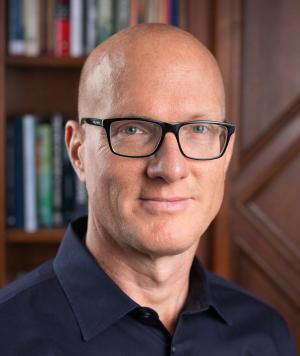
Brown University, Ph'D 02
BIOGRAPHY
I am an historian of modern US politics broadly construed, with special interests in the mutual constitution of social categories, democratic publics, and state formation.
My first book, Warfare State, is a history of the social politics of the national state as its foundations shifted from welfare to warfare during World War II. Its central concern is to examine the ways in which different groups of citizens encountered the burgeoning warfare state and in the process accepted, rejected, or otherwise contested the legitimacy of expanding federal authority in everyday life, thereby shaping the horizons of political possibility for decades.
I am currently completing a sequel to Warfare State tentatively titled Sovereign Discipline: The American Extraterritorial State in the Atomic Age. This book examines the mass politics of extraterritorial sovereignty, and the crisis of legitimacy it engendered, from V-E Day to the Cuban Missile Crisis. My third book project is also nearing completion. It is an intellectual history titled New Leviathan: Rethinking Sovereignty and Political Agency after Total War.
Much of this recent work is informed by a long-term collaborative research project on the problem of the democratic state, which has benefitted from two Neubauer Collegium project grants for which I am codirector ("The State as History and Theory" and "The Problem of the Democratic State in US History"), and resulted in the edited collection Boundaries of the State in US History as well as two special issues of the Tocqueville Review.
My teaching interests include both graduate and undergraduate courses on the history of US politics, diplomacy, and war; social engineering; social movements; citizenship; America in the world; the American state; and a set of undergraduate research seminars on the history of the New Deal, the early Cold War, and digital history. I am also committed to teaching in Chicago's distinctive Core Curriculum. It is one of the oldest general education curricula in the United States, engaging foundational works and questions in the humanistic social sciences for decades since the 1930s.
Recent Research / Recent Publications
Warfare State: World War II Americans and the Age of Big Government. New York: Oxford University Press, 2011.
- Honorable mention, 2012 Frederick Jackson Turner Award, Organization of American Historians.
- Review by Walter Russell Mead in Foreign Affairs (March/April 2012).
-
Boundaries of the State in US History, edited by James T. Sparrow, William J. Novak, and Stephen W. Sawyer . Chicago: University of Chicago Press, 2015.
-
"Beyond Stateless Democracy," edited by William J. Novak, Stephen W. Sawyer, and James T. Sparrow, special issue, Tocqueville Review 36, no. 1 (2015).
-
"The History of the French and American States," edited by Stephen W. Sawyer, William J. Novak, and James T. Sparrow, special issue, Tocqueville Review 33, no. 2 (2012).
-
"Democratic States of Un-Exception: Towards a New Genealogy of the American Political," coauthored with William J. Novak and Stephen W. Sawyer. In Many Hands of the State, edited by Kimberly Morgan and Ann Orloff. Cambridge: Cambridge University Press, in press.
-
"Rumors of Empire: Tracking the Image of Britain at the Dawn of the American Century." In Boundaries of the State in US History, edited by James T. Sparrow, William J. Novak, and Stephen W. Sawyer . Chicago: University of Chicago Press, 2015.
-
"Introduction," coauthored with William J. Novak and Stephen W. Sawyer. In Boundaries of the State in US History, edited by James T. Sparrow, William J. Novak, and Stephen W. Sawyer. Chicago: University of Chicago Press, 2015.
-
"Morgenthau's Dilemma: Rethinking the Democratic Leviathan in the Atomic Age." In "Beyond Stateless Democracy, edited by William J. Novak, Stephen W. Sawyer, and James T. Sparrow, special issue, Tocqueville Review 36, no. 1 (2015).
-
"Beyond Stateless Democracy," coauthored with William J. Novak and Stephen W. Sawyer, In "Beyond Stateless Democracy, special issue, Tocqueville Review 36, no. 1 (2015).
-
"Behind the Atomic Curtain: School Desegregation and Territoriality in the Early Cold War." In "The History of the French and American States, edited by Stephen W. Sawyer, William J. Novak, and James T. Sparrow, special edition, Tocqueville Review 33, no. 2 (2012): 115–139.
-
"Toward a History of the Democratic State," coauthored with William J. Novak and Stephen W. Sawyer. In "The History of the French and American States, special edition, Tocqueville Review 33, no. 2 (2012): 7–18.
-
"Freedom to Want: The Federal Government and Politicized Consumption in World War II." In Fog of War: The Second World War and the Civil Rights Movement, edited by Kevin M. Kruse and Stephen Tuck. New York: Oxford University Press, 2012.
-
"A Nation in Motion: Norfolk, the Pentagon, and the Nationalization of the Metropolitan South, 1941–1953." In The Myth of Southern Exceptionalism, edited by Matthew D. Lassiter and Joseph Crespino. New York: Oxford University Press, 2010.
-
"'Buying Our Boys Back': The Mass Foundations of Fiscal Citizenship in World War II." Journal of Policy History 20, no. 2 (2008): 263–86.
-
"Hot War, Cold War: The Structures of Sociological Action, 1940–1955," coauthored with Andrew Abbott. In Sociology in America: The American Sociological Association Centennial History, edited by Craig Calhoun. Chicago: University of Chicago Press, 2007.
-
Awarded 2023 Quantrell Award for excellence in undergraduate teaching
-
Named an OAH Distinguished Lecturer
-
Co-organizes Major Project on "State as History and Theory" at the Neubauer Collegium
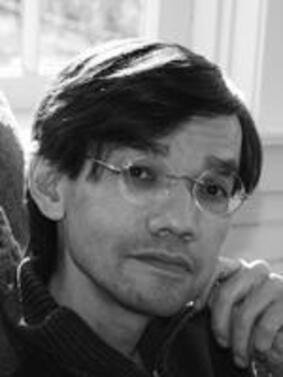
Stanford University, PhD '92
Professor Tenorio has been a scholar for over two decades, including thirteen years at the University of Chicago.
Recent Research / Recent Publications
Las ruinas de la historia: el culto a los monumentos y a su destrucción, Madrid, Alianza Editorial, 2023.
Elogio de la impureza: Promiscuidad e historia en Norteamérica, Mexico City, Siglo XXI, 2023.
A flor de pie, Xalapa, Universidad de Veracruz, 2020.
Clio’s Laws: On History and Language, Austin, The University of Texas at Austin, 2019.
La Paz: 1876, Mexico City, Fondo de Cultura Económica, 2018.
Latin America: The Allure and Power of an Idea, Chicago, University Press, 2017. Paperback Edition, 2020
“Hablo de la ciudad”: los principios del siglo XX desde la Ciudad de México, Mexico City, Fondo de Cultura Económica, 2017. (Spanish translation of “I Speak of the City”).
Maldita lengua, Madrid, La Huerta Grande, 2016.
“I Speak of the City”: Mexico City at the Turn of the Twentieth Century, Chicago, The University of Chicago Press, 2013. Paper back, March, 2015.
Honorary Mention, The Bolton-Johnson Prize 2013, The American Historical Association.
Spiro Kostof Book Award, Society of Architectural Historians, 2015. Gordon J. Laing Prize, The University of Chicago Press, 2015
Culturas y memoria, Mexico City, Barcelona, Tusquets, July, 2013.
Historia y Celebración, México y sus centenarios, Mexico City, Tusquets, 2009.
Historia y Celebración. América y sus centenarios, Barcelona, Tusquets, 2010. New edition of the 2009 version, published in Spain.
El Porfiriato: Una propuesta y un balance, written in collaboration with Aurora Gómez, Mexico City, Fondo de Cultura Económica, 2006.
El urbanista, Mexico City, Fondo de Cultura Económica, 2004.
De cómo ignorar, Mexico City, Fondo de Cultura Económica, 2000.
Argucias de la historia: siglo XIX, cultura y “América Latina,” Mexico City, Barcelona, Buenos Aires, Editorial Paidós, 1999.
Artilugio de la nación moderna. México en las exposiciones universales, 1880-1930, Mexico City, Fondo de Cultura Económica, 1998. (An expanded and edited translation of Mexico at The World’s Fairs)
Mexico at World's Fairs: Crafting a Modern Nation, Berkeley, The University of California Press, 1996. Re-edited, The University of California Press Voices Revived, 2018
“Sobre la paz en la historia,” Segle XX. Revista Catalana d´Hitòria, vol. 15 (2022), pp. 119.
“Los conceptos son palabras y agarrosas. Concepts are words, and catchy at that,” forthcoming Istor.
“Review Essay: Conceitos and Conceptos: The Wight of Words in the Iberian World,” forthcoming, Journal of the History of Ideas.
“Estados Unidos en Historia Mexicana y algo más,” Historia Mexicana, no. 281 (JulySeptember 2021).
“History on Foot: Walking Mexico City,” Current History (February 2020).
“Latinoamérica: el encanto y el poder de una idea,” Prismas. Revista de Historia Intelectual, no. 22 (2018).
“Latinoamérica: sus connotaciones esenciales,” Istor, 67 (December 2016).
“La C por la K: El Barret Mexicà en las Ramblas” Cuadernos Hispanoamericanos, no. 781-82 (2015), pp. 105-120.
“O Campus, My Campus!,” Istor (Fall, 2014), pp. 20-45.
“A Lost Opportunity: Carlos Fuentes, the Essay, and Mexico in English,” La Habana Elegante, no. 55 (Spring-Summer, 2014).
“América Latina: a ideia, mais uma vez,” Interseções: Revista de Estudos Interdisciplinares, v. 14, n. 2 (2013).
“Alrededor de 1812: las Américas y la monarquía,” Istor, no 51 (Winter 2012)
“Un recuerdo,” in “El siglo XIX de Tulio Halperín,” Prismas, Revista de Historia Intelectual, no. 15 (2011), pp. 237-240.
“Poesia e historia,” Istor, no. 47 (Winter, 2011).
“De piojos, ratas y mexicanos,” Istor, no. 41 (Summer, 2010), pp. 1-40
“The Riddle of a Common History: The United States in Mexican Textbooks Controversies,” Context, vol. 1, no. 1 (Spring 2009), pp. 103-131.
“Around 1919 and in Mexico City,” Working Paper, CIDE, April 2009, pp. 95.
“Algo más que una entrevista, Díaz-Creelman,” Istor, no. 39 (Spring 2009), pp. 117-128.
“On Monolingual Fears,” Public Culture, vol. 19, no. 3 (2007), pp. 425-432.
“On the Limits of Historical Imaginations: North America as a Historical Essay,” International Journal, vol. 61, no. 2 (Summer 2006), pp. 567-587.
“Identidad, nuestra preclara obsesión. Un diálogo y algo más,” Mauricio Tenorio Trillo (moderator), Roger Bartra, Partha Chatterjee, Robin Kelley, Fernando Escalante, and Sanjay Subrahmanyam, in Istor, Centro de Investigación y Docencia Económicas, A.C., no. 11, 2003.
“World’s Fairs: The Seven Deadly Sins,” in Volcher Barth edited issue of the Bulletin of the Bureau of International Exhibitions, June 2002, 40 pp.
Caminhando para a "desestadunização" da história dos Estados Unidos: um diálogo,” article and dialogue with David Thelen and Thomas Bender, in Estudos Históricos, Fundaçao Getulio Vagas, Rio de Janeiro, Brasil, No. 27 (2001), pp 52-77.
“Historia de las Historias en Estados Unidos,” in Istor, Centro de Investigación y Docencia Económicas, A.C, Mexico City, Winter 2000, 62-81.
"Stereophonic Scientific Modernism. Social Science Between Mexico and the U.S., 18801920,” Journal of American History, vol. 86, nom. 3 (December 1999), pp. 1156-118.
"The Cosmopolitan Mexican Summer, 1920-1949" (Review-essay), Latin American Research Review, vol. 32, no. 3 (1997), pp. 224-242.
"De Encuentros y Desencuentros: La Escritura de la Historia en Estados Unidos. Ensayo de una visión forastera," in Historia Mexicana, El Colegio de México, Mexico City, vol. 46, no. 4 (1996), pp. 889-925.
"1910 Mexico City: Space and Nation in the City of the Centenario," in Journal of Latin American Studies, Cambridge, United Kingdom, vol. 28 (February 1996), pp. 75-104.
"Estados Unidos: Ciudadanía y cultura en tiempos de desazón. El debate de los noventa," Estudios Sociológicos, El Colegio de México, Mexico City, vol. 13, no. 39 (SeptemberDecember 1995), pp. 501-530.
"Del nacionalismo y México," in Política y Gobierno, Centro de Investigación y Docencia Económicas, A.C , Mexico City, vol. II, no. 2 (Second Semester, 1995), pp. 313-334.
"Ciencia e Historia: A la cacería de sentidos comunes,” in Memorias de la Academia Mexicana de la Historia, Correspondiente a la Real de Madrid, Academia Mexicana de la Historia, Mexico City, (1994), pp. 1-30.
"A Tropical Cuauhtémoc: Celebrating the Cosmic Race at the Gunabara Bay," in Anales del Instituto de Investigaciones Estéticas, Universidad Nacional Autónoma de México, Mexico City, no. 65 (1994), pp. 93-137.
"Um Cuauhtémoc Carioca: Comemorando o Centenário de Independência do Brasil e a raça cósmica,” in Estudos Históricos, Fundação Getúlio Vargas, CEPDOC, Rio de Janeiro, vol. 7. No. 14 (1994), pp. 123-148.
"Gringos Viejos: Radicales norteamericanos en los años treinta y su visión de México (una interpretación)," in Secuencia, Instituto de Investigaciones Históricas José María Luis Mora, Mexico City, no. 21 (September-December, 1991), pp. 95-116.
"América: Historia y Conmemoración. Un comentario Historiográfico," in Revista Estudios Históricos, Instituto Tecnológico Autónomo de México, Mexico City, no. 25 (Summer 1991), pp. 29-41.
"Bartolomé Mitre y Vicente Fidel López. El Pensamiento Historiográfico Argentino en el siglo XIX," in Secuencia, Instituto de Investigaciones Históricas José María Luis Mora, Mexico City, no. 16 (January-April 1990), pp. 97-121.
"Profissão: Latin-Americanist. Richard M. Morse e a historiografia norteamericana da América Latina," in Estudos Históricos, Fundação Getúlio Vargas, CEPDOC, Rio de Janeiro, vol. 2 no. 3 (1989), pp. 102-132.
Publishes A Flor de Pie (Universidad Veracruzana, 2020)
Publishes Clio's Laws: On History and Language (UT Press, 2019)
Awarded a 2019 Quantrell Award for Excellence in Undergraduate Teaching
Publishes La Paz: 1876 (FCE, 2018)
Publishes Latin America: The Allure and Power of an Idea (Chicago, 2017)
Profiled after offering the 2022 Lozano Long Conference keynote at the University of Texas at Austin
Awarded 2015 Laing Prize by the University of Chicago Press
Considers Recent Chronicles of Mexico City for Public Books
Discusses I Speak of the City. Mexico City at the Turn of the Twentieth Century (Chicago, 2012) with el Colegio de México [video, 10 minutes]
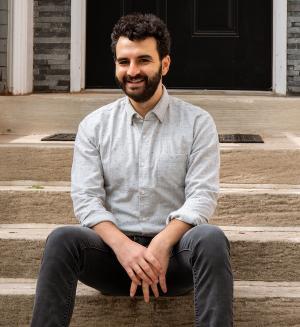
Yale University, PhD' 18
BIOGRAPHY
Gabriel Winant is a historian of the social structures of inequality in modern American capitalism. His work approaches capitalism as an expansive social order—not confined to the market alone but rather structurally composed of multiple, heterogeneous spheres. He focuses on the relationship between economic production and formal employment on the one hand, and the social reproduction and governance of the population on the other. Broadly, he is interested in transformations in the social division of labor and the making and management of social difference through this process.
His first book, The Next Shift: The Fall of Manufacturing and the Rise of Health Care in Rust Belt America investigates the rise of the “service economy” in the aftermath of manufacturing. The Next Shift locates the origins of today’s social inequality in America’s postwar political economy. Across the Rust Belt, the health care industry today dominates employment, accounting for one in five jobs in places like Detroit, Rochester, Baltimore, and Pittsburgh. As the care economy has grown, it has been an engine of insecurity for workers, who are overwhelmingly women and people of color employed at low wages and in precarious positions. Using Pittsburgh as a case study, The Next Shift shows how deindustrialization triggered the ascent of the care economy and stamped it with the inequalities produced by the New Deal state’s hierarchies of race and gender.
His second project, tentatively titled Our Weary Years: How the Working Class Survived Industrial America, explores similar problems in an earlier period. This project will examine the relationship between several key historical phenomena in capitalist development at the turn of the twentieth century: the survival strategies of new migrants in cities like Chicago and New York—often involving practices that were cooperative, informal, illicit, or illegal; the rise of mass production and the ensuing large-scale imbalances between production and consumption; and the construction and contestation of a new set of norms against informal, cooperative, and illicit—that is, non-market—survival strategies and the social worlds that sustained them.
Before coming to the University of Chicago, Winant was a visiting scholar at the American Academy of Arts and Sciences. He also writes frequently for publications such as the Nation, Dissent, and n+1.
Recent Research / Recent Publications
-
The Next Shift: The Fall of Industry and the Rise of Health Care in Rust Belt America. Harvard University Press, 2021. Winner of the 2022 Frederick Jackson Turner Award.
-
"The Natural Profits of Their Years of Labor: Mass Production, Family, and the Politics of Old Age," forthcoming in Radical History Review 139 (January 2021).
-
“Anomalies and Continuities: Positivism and Historicism on Inequality,” Journal of the Gilded Age and Progressive Era 19, no. 2 (April 2020), 285-295.
-
“‘Hard Times Make for Hard Arteries and Hard Livers’: Deindustrialization, Biopolitics, and the Making of a New Working Class,” Journal of Social History 53, no. 1 (Fall 2019), 107-132.
-
“Inner Dialogue,” History Workshop Journal 87 (Spring 2019), 301-310.
-
“A Place to Die: Nursing Home Abuse and the Political Economy of the 1970s,” Journal of American History 105, no. 1 (June 2018), 96–120.
-
“The Making of Nickel and Dimed: Barbara Ehrenreich and the Exposé of Class in America,” Labor 15, no. 1 (Feb. 2018), 67–79.
-
“Conflict and Consensus: The Steel Strike of 1959 and the Anatomy of the New Deal Order,” coauthored with Kristoffer Smemo and Samir Sonti, Critical Historical Studies 4, no. 1 (Spring 2017), 39–73.
-
“‘Green Pastures of Plenty from Dry Desert Ground’: Nature, Labor, and the Growth and Structure of a California Grape Company,” Enterprise and Society 16, no. 1 (Mar. 2015), 109–40.
-
“State Agency: Social History with and beyond Institutionalism.” Under review for Brent Cebul, Lily Geismer, and Mason Williams, eds., New Histories of Liberalism, forthcoming.
-
“The Fissured Welfare State: Care Work, Democracy, and Public-Private Governance.” In Labor and Democracy: Constructing, Deepening, and Defending Citizenship Rights, edited by Angela B. Cornell and Mark Barenberg, 334-350. New York: Cambridge University Press, 2022.
-
Writes book review for Dissent Magazine, Summer 2019